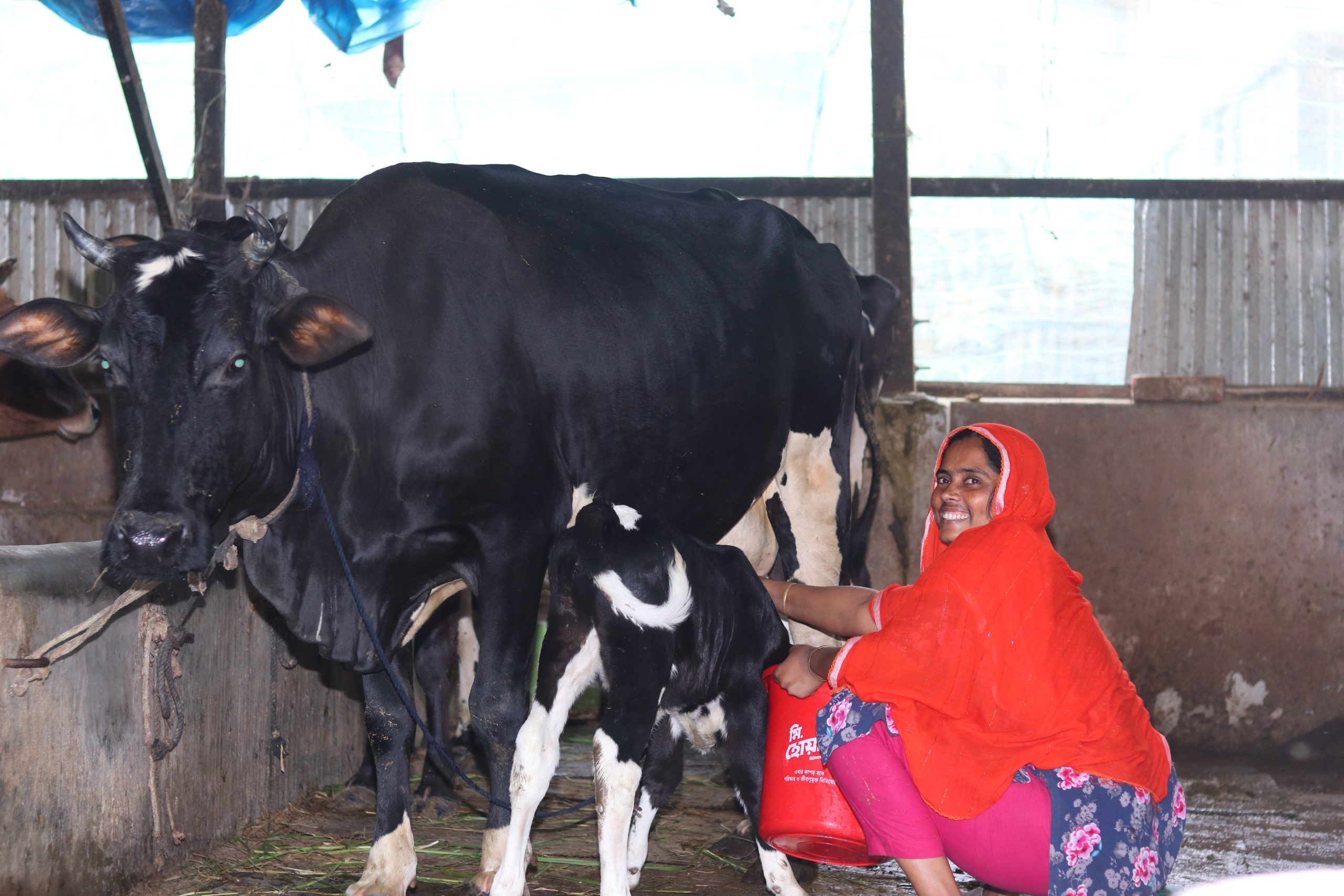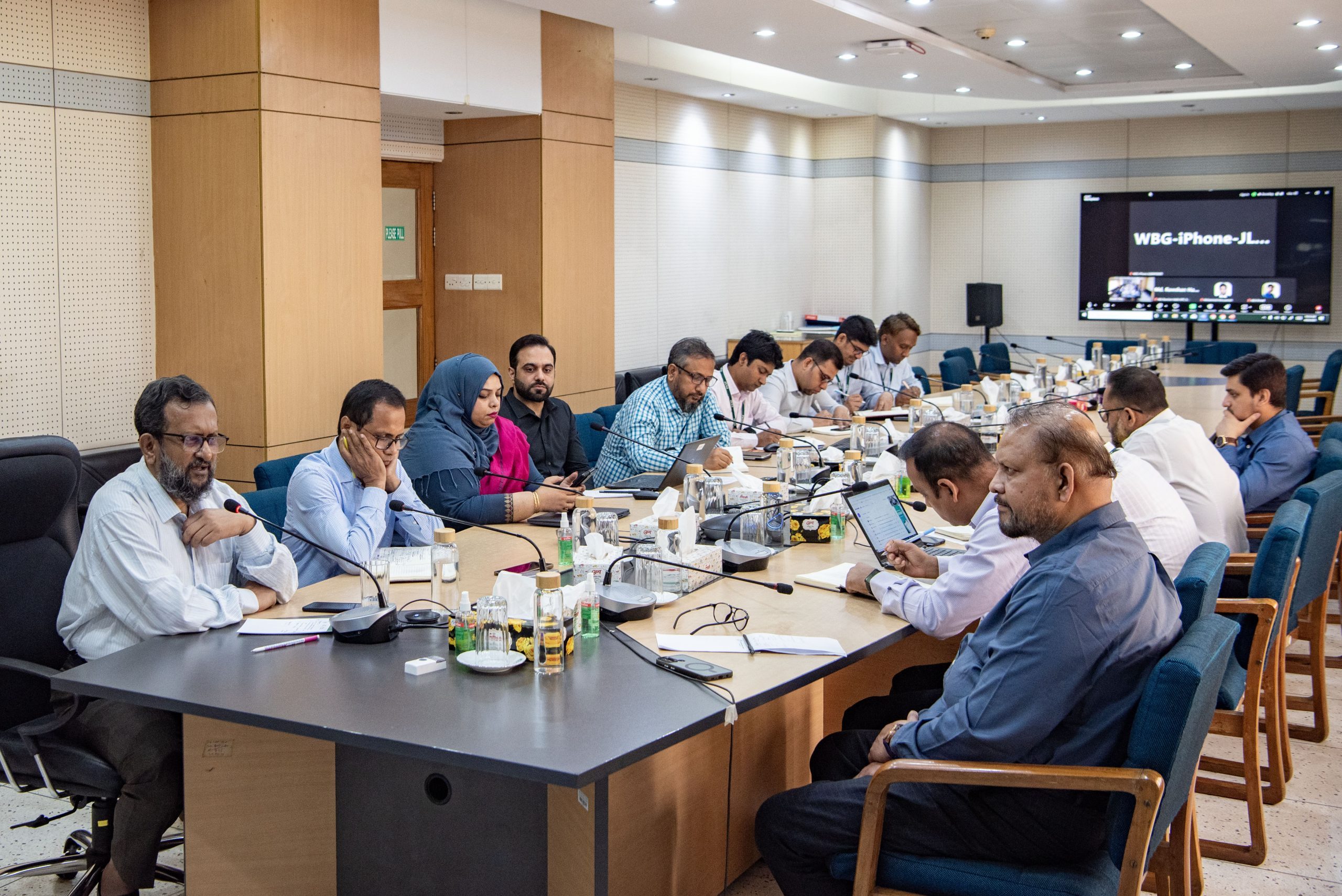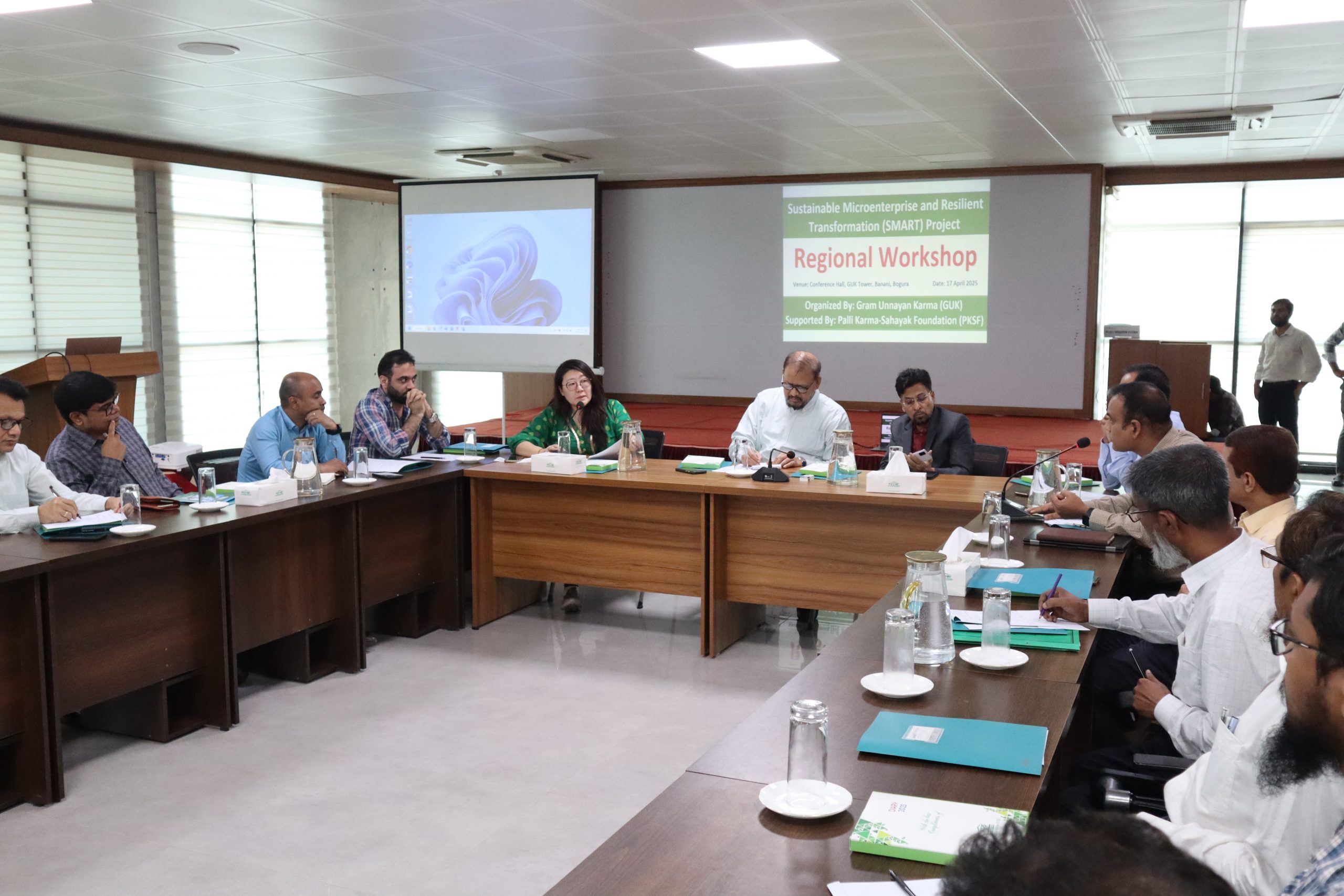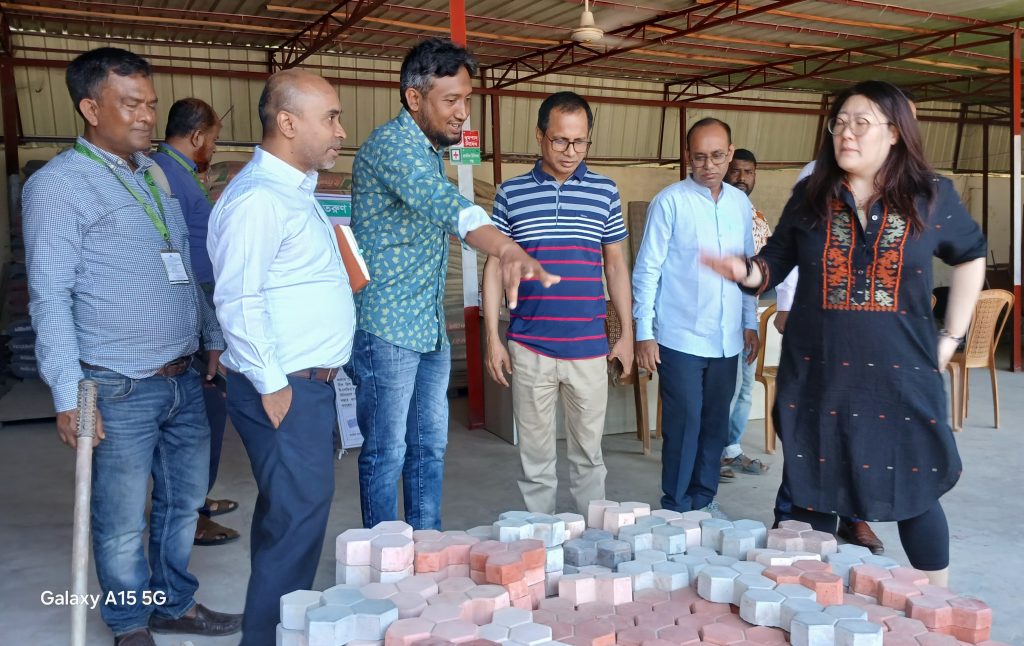Jharna’s farm: A unique example of cleaner production
Jharna Akter (46), a dedicated entrepreneur from Kabutar Khola village in Srinagar, Munshiganj district, has proven that even the toughest obstacles can be overcome with the right approach and technology. Despite her long experience in cattle rearing, she faced severe social discontent and harsh reality due to poor waste (cow dung) management on her farm. With support from PKSF’s Sustainable Microenterprise and Resilient Transformation (SMART) project, Jharna has transformed her farm into a clean, profitable, and socially acceptable model.
Today, Jharna’s farm houses 12 cows, producing about 60 liters of milk daily, which serves as the main source of income for her family. Previously, she used to store cow dung beside the farm, causing the pond next to it to overflow into neighboring paddy fields. Located by the roadside, her farm’s waste created unbearable stench and environmental pollution. Eventually, complaints from neighbors and an order from the local union council chairman forced Jharna to consider shutting down her farm.
In this critical situation, a new opportunity emerged when she connected with the officials of the SMART project, implemented in the field by Resource Integration Center (RIC), a PKSF Partner Organization. Through them, she learned about the project’s Resource-Efficient and Cleaner Production (RECP) practices and how efficient resource use and improved waste management could make her farm sustainable and environmentally friendly.
Beginning of a new chapter: After joining the SMART project, the sub-project officials facilitated a solution by arranging for Md Mobarak Hossain, a local organic fertilizer producer, to purchase the dung from Jharna’s farm. Jharna shared, “The dung that almost forced me to shut down my farm is now being sold for money — something I never imagined. I learned from the project officials that Mobarak Hossain produces organic fertilizer commercially and sells it both locally and nationally.”
Inspired by this new income opportunity, Jharna decided to venture into organic fertilizer production herself. She took a loan of BDT four lakh from the Partner Organization under the SMART project. With project support, she established a biogas plant, a waste pit, and a vermicompost unit on her farm. She now uses biogas for cooking, and waste management is no longer an issue.
Additionally, she installed transparent sheets on the roof to reduce electricity costs, introduced net ventilation to improve indoor air quality, and fitted nozzles and foggers to ensure moderate water usage. These measures have significantly reduced the wastage of electricity, water, and fodder, while lowering environmental pollution. Consequently, her farm has maintained business growth while preserving environmental sustainability.
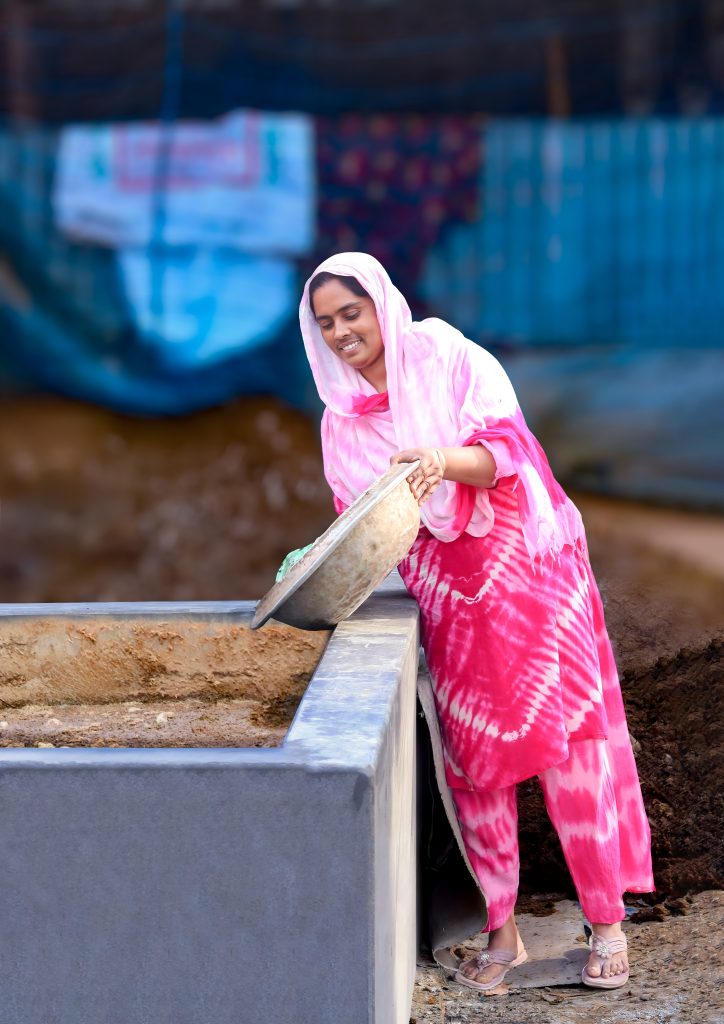
Taste of success: These interventions have not only reduced operational costs but also significantly boosted Jharna’s income. With further support from the SMART project, the health of her livestock has improved through regular balanced feeding, timely vaccinations, and deworming.
Seeing her success, other farmers in the area are now eager to adopt RECP practices, reinforcing the potential for a cleaner, more sustainable agricultural sector. Jharna proudly says, “The dung that almost closed my farm is now my source of income!”
Jharna Akter’s journey is more than just the transformation of a farm — it stands as a testament to how the right support and awareness can turn challenges into opportunities. Today, her farm shines as a model of clean and sustainable production.



